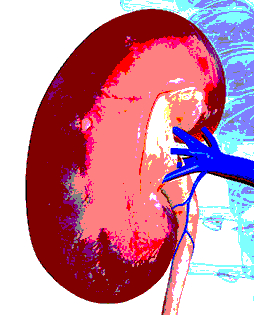Step taken toward stem cell kidneys
 Australian researchers have made an important step towards making human kidneys from stem cells.
Australian researchers have made an important step towards making human kidneys from stem cells.
In 2015, Professor Melissa Little and her team at Murdoch Children's Research Institute (MCRI) grew kidney tissue from stem cells for use in drug screening and disease. Researchers across the globe now use this method.
“The mini-kidney we have grown in the laboratory has all the different cell types and structures found in a ‘real’ kidney, but so far we haven’t managed to properly attach the blood vessel system in a culture dish and achieve sufficient maturation of this kidney tissue,” says Dutch researcher Cathelijne van den Berg.
In a new research project, an Australian and Dutch team has transplanted a stem-cell derived kidney organoid under the protective layer surrounding the kidney of a living mouse.
They were able to see blood flow through the filtration units of the human kidney organoid. They also discovered connections between the blood vessels of the mouse and the human kidney tissue.
After four weeks of transplantation, the kidney tubules and blood vessels showed evidence of fully developed adult kidney tissue.
“The fact that we can make kidney tissue from human stem cells and have this develop into mature kidney tissue after transplantation is a very promising step towards developing this further for treatment,” said Professor Little.
Chronic kidney disease is rising in incidence by 6 per cent per year, and currently costs the Australian economy $1 billion a year.
Kidney Health Australia estimates that 1 in 10 Australians will show evidence of chronic kidney disease by 2020, but only 1 in 4 patients will receive a transplant. Hence, there is an acute need to develop new therapies.
“There is a long way to go to make the tissue large enough for treatment, but knowing that it will begin to function is an important step along the way”, said Professor Little.







 Print
Print